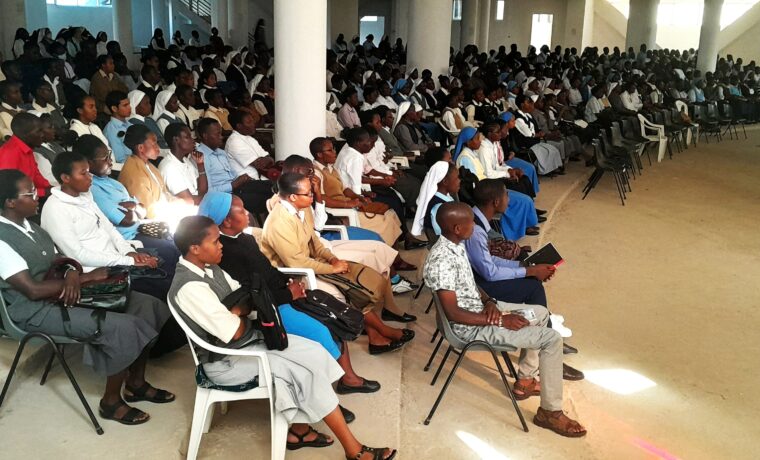Notes from a novice master on the favorable moment for priestly and religious vocations in Africa
Every year in February we leave Karungu House, in the Diocese of Homa Bay, and move to St. Camillus Seminary in Nairobi. Why? Because every afternoon both the novices and their master go to Karen, a village located on the southern outskirts of Nairobi, to take part in inter-congregational formation courses. Three hours of instruction on various biblical, pastoral, and psychological topics. So far, nothing special. Such courses are offered everywhere and are part of the modern training of every novice, male or female, in any diocese in the world. The point I want to highlight here is the influx of trainees, namely the number of novices participating in these courses. This year in Nairobi, 356 novices from 39 congregations took part in the February course. To be precise, most of them were novices in their first (canonical) year or second year of novitiate. The number of men novices was much smaller than that of women novices for two reasons: first, because female religious vocations in Africa are much greater than male ones; second, because male novitiates have more practical opportunities to offer courses – even specific – at their locations.
It should be noted that the 365 trainees who participated in the course do not represent the complete number of novices present in Nairobi, let alone in Kenya, because – as mentioned – many do not participate in the inter-congregational courses. These courses are offered three times a year: in February, May, and October. Each of these three months offers a different program that extends over two years for a total of six months of teaching. We Camillians participate in one month per year, in February; the rest of the training takes place at our novitiate house in Karungu.
Provocative Title
The provocative title of this article arose from seeing the crowd of novices who gather every afternoon for instruction and interaction. Upon arriving at the meeting place, seeing a multitude of mini busses struggling to find parking and hundreds of young people sporting religious attire of various forms and colours making their way to the conference hall, I asked myself, “But haven’t we been saying for a long time that there are no more religious vocations?” At the sight of this scene, one would not say that there are no more religious vocations! Or rather, it is true that there are almost no more vocations, but this applies to Europe or the Western world, certainly not to Africa and, I believe, to many parts of Asia.
Here in Kenya, we are witnessing what was happening in Italy in the 1950s and 1960s, before and during the Second Vatican Council, the years when I myself entered the seminary (in 1962!). At that time, the seminaries – both diocesan seminaries and religious ones, as well as convents of nuns – were crowded, although not everyone who entered later embraced priesthood or religious life. Even then, there were defections, so after the first few years of discernment, many young people in training pursued other paths in life.
Is the Lord still calling?
In Africa, it is still more or less the same. Not always, even here, are the motivations for vocational choice clear and genuine. So many young people enter the seminary, but many also leave. However, a good number manage to complete their journey through priestly consecration or membership in a religious congregation. The important thing is to recognize that the Lord still calls to follow Christ. He continues to call workers to labour in His vineyard, even though the geographic areas of calling have changed. We hope that this current wealth of vocations in African soil continues both in terms of quantity and quality. Let’s not miss the opportunity. It is necessary to foster a commitment to mutual collaboration between the fortunate African dioceses and the less fortunate Western dioceses. The former should make their human resources available – priests, nuns, religious brothers – while the latter should support the subjects in formation with financial and logistical assistance. Initiatives that are already underway, as it is not uncommon to see Italian parishes run by African priests, or hospital chaplaincies with chaplains from Africa, or kindergartens assisted by African nuns.
In the meantime, let us not grow weary of praying for vocations – even though they are not lacking in Africa – because the harvest is still abundant, too abundant!
Fr. Paolo Guarise MI














Camillians on Facebook
Camillians on Twitter
Camillians on Instagram